Employment Rights of Seafarers
Employment Rights of Seafarers: a comparative study on UK and Sri Lankan Maritime Labour Laws in light of Maritime Labour Convention
By M.U.I. Peiris
Abstract
Maritime labour has become a very important aspect of the shipping sector in recent times. Seafarers have been categorized as the key workers whose contribution has significant impact on the global trade. Due to the nature of shipping industry, seafaring is always seen as a very challenging occupation. They work and live on the ship during the whole contract period and subjected to different jurisdictions and often, facing difficulty to claim compensations for violation of employment rights.
The Maritime Labour Convention (MLC) of ILO which came into force in 2013 has been recognized as the ‘seafarers’ bill of rights’ and has been ratified by many countries. Sri Lanka is one of the leading seafaring countries in the region and as per the Convention, Sri Lanka is required discharge its responsibilities as a flag and port State and moreover, as a labour supplying State. The effective implementation and enforcement of provisions of Maritime Labour Convention is very essential for the protection of seafarers’ employment rights.
The overall objective of this research is to explore the international labour standards and to critically analyse the existing laws in UK and Sri Lanka in order to propose necessary legal reforms to Sri Lankan Law. This research adopts a qualitative approach which involves doctrinal and comparative study of labour laws in UK and Sri Lanka. The UK law is selected mainly due to the fact that UK has a well establish legal regime in the maritime field. Also UK practices common law system. The study reveals that the existing Sri Lankan labour laws do not sufficiently address the provisions contained in the international maritime labour standards and some of the provisions are not consistent with some fundamental labour standards of ILO. The UK legal regime is very much in line with the MLC and comparatively, Sri Lankan Law requires reforms in order to ensure the protection of seafarers’ employment rights.
Download File
File Name: Employment Rights of Seafarers
Size: 403 KB
Format: PDF
Browse By
© 2012-2019 ICBT Campus | Design by ICBT IT Team | ICBT All Rights Reserved.
Design by ICBT IT Team

